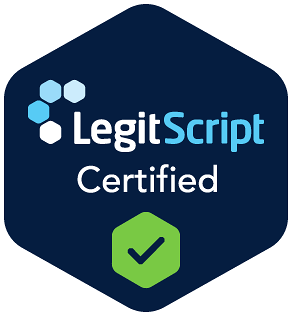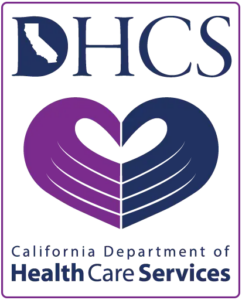Much has been written about detox, from what it is to what it entails, and even what to expect. While it is known that detox is the crucial first step in addiction treatment and that it comes with uncomfortable and sometimes even dangerous withdrawal symptoms, one aspect of the overall detox process that gets overlooked far too often is the role that nutrition plays.
Nutrition is crucial to detoxing, particularly as it relates to how effectively the body can cleanse, repair, and heal, three of the main goals of detoxing. In fact, for those in detox and recovery, emphasizing a well-balanced and nutritious diet isn’t just about feeling better or getting to a healthy weight; it’s a foundational part of the process that supports mental clarity, emotional balance, and physical strength.
In this blog, we’ll explore how substance abuse disrupts nutrition, what detoxification truly entails, why the foods you eat during detox can either support or hinder your recovery, what foods to eat when detoxing, and how Surf City Detox in Huntington Beach, California, can help with your sobriety journey.
Substance Abuse Disrupts Nutrition
Substances of abuse, whether legal or illegal, often come with several unintended side effects. Furthermore, they can change the way your body and brain function. All of this can ultimately lead not only to poor nutrition habits but also to a disruption in the way your body and brain absorb nutrients.
Over time, drug and alcohol use can:
- Suppress your appetite or replace meals entirely
- Damage the digestive tract and reduce the body’s ability to absorb nutrients
- Increase metabolic demands, which require more nutrients to be taken in
- Impair organ function, particularly the liver and kidneys
- Cause malnutrition
For those struggling with substance abuse and addiction, this can all lead to significant health issues such as vitamin and mineral deficiencies, low protein levels, and potentially dangerous sugar imbalances, all of which can contribute to fatigue, irritability, poor immunity, and even worsened withdrawal symptoms.

What is Detoxification?
Medical detox is the process in which the body starts the recovery and healing process by naturally ridding itself of all the harmful substances that are in it. As we mentioned, it is the crucial first step in recovery because without detox, the body can’t heal and treatment can’t truly begin.
Detoxing also often comes with uncomfortable and even dangerous withdrawal symptoms. These symptoms can be so painful and uncomfortable that many who attempt to self-detox find themselves relapsing and using again just to ease the pain and get rid of the discomfort. That’s why undergoing medical detox is so important. Not only do you have access to medical care and monitoring, but you also have access to medications that can be administered to help alleviate or even treat withdrawal symptoms.
Why Nutrition is Important During Detox
Let’s face it, nutrition is an important component of everyone’s life. When it comes to addiction recovery, though, nutrition is even more crucial.
When the body detoxes, it is put under a significant amount of stress. After all, something that the body and brain think they need to function has been taken away. As a result, the liver and kidneys have to work overtime to flush everything out, and the brain is recalibrating its chemical balance. Eating well can help make this process a little easier as it gives the body and brain the raw materials they need to function effectively.
Nutrition’s Role in Detoxification: Not Just Another “Fad Diet”
It’s also important to keep in mind that the concept of proper nutrition during detox and recovery isn’t just another one of those “fad diets”, like a juice cleanse or going heavy on protein. The nutritional measures taken during detox are scientifically proven and are done specifically to help with the restoration of the body and brain. Specific foods are eaten, or not eaten, to promote the cleansing of the body, the rebuilding of tissues, and the healing of the brain, all with the goal of continued sobriety and recovery.
How Substance Abuse Affects Your Body and Nutrient Levels
Before we get into some of the good and bad foods that should be eaten or avoided during detox and recovery, let’s first take a look at what certain substances of abuse do to the body when abused. After all, if you know what these substances do, then you will have a better understanding of the importance of eating certain foods during detox.
Here’s how some of the more common substances of abuse impact the body’s nutrition:
- Alcohol – Damages the liver and digestive tract, leading to poor absorption of B vitamins (especially thiamine), magnesium, and zinc.
- Opioids – Slow digestion, often causing gastrointestinal issues and poor nutrient absorption. Users may also have low levels of calcium and magnesium.
- Stimulants (e.g., cocaine, meth) – Suppress appetite and increase energy expenditure, leading to weight loss and severe nutrient deficiencies.
All of these instances result in a body and brain that are malnourished, inflamed, and poorly equipped to deal with the stress of detox. By restoring key nutrients to the body, both the body and brain can be better equipped to handle withdrawal symptoms.
Essential Nutrients to Support Detoxification
So, what are some of the key nutrients that support detox, you may ask? Well, let’s take a look at some of them:
Crucial for energy production, brain function, and nervous system support. Often depleted by alcohol and drugs.
Helps relax the nervous system and ease muscle tension, often used to reduce withdrawal symptoms like cramps or anxiety.
A powerful antioxidant that supports immune function and tissue repair.
Important for immune health, healing, and hormone balance.
Support brain health, reduce inflammation, and improve mood.
Needed to rebuild tissues and produce neurotransmitters like dopamine and serotonin.
Helps normalize digestion and eliminate toxins through the digestive tract.

Foods to Eat While Detoxing From Drugs and Alcohol
Now that we have looked at some of the essential nutrients that can help make the detox process easier, let’s take a look at some of the foods you should be eating while detoxing:

Brown rice, quinoa, oats, and whole wheat bread provide steady energy and fiber to regulate blood sugar.
Eggs, chicken, turkey, fish, tofu, and legumes help rebuild muscle and support neurotransmitter production.
Rich in vitamins, antioxidants, and water content. Aim for a colorful variety (e.g., berries, spinach, carrots, sweet potatoes).
Avocados, nuts, seeds, and olive oil promote brain health and reduce inflammation.
Yogurt, kefir, sauerkraut, and kimchi can restore gut health and boost immunity through beneficial probiotics.
Water, herbal teas, and broths help flush toxins and combat dehydration, a common issue during detox.
Foods to Avoid During Detox
While those are the foods that you SHOULD be eating during detox, it’s also important to note that there are certain foods you will want to avoid while detoxing.
Below are some foods that you will want to try and avoid during detox:
- Processed foods – Often high in sugar, unhealthy fats, and additives that burden the liver.
- Caffeine – Can increase anxiety, interfere with sleep, and stress the adrenal glands.
- Refined sugar – Causes blood sugar spikes and crashes, which can worsen mood and cravings.
- Fried and greasy foods – Difficult to digest and can irritate the gut.
- Artificial sweeteners and additives – May interfere with neurotransmitter balance and digestion.
- Alcohol – Even small amounts can disrupt detox and restart addictive patterns.
Creating a Personalized Nutrition Plan for Detox
Every person’s body is different, and so is every detox journey. That’s why, at Surf City Detox in Huntington Beach, CA, our nutritionists and clinicians work together to create custom meal and nutrition plans for each person to meet their needs, including taking into account any allergies, such as gluten-free options.
Nutrition isn’t just important during detox, it’s a cornerstone of long-term recovery. We go beyond symptom management by educating our clients on the best foods to eat when detoxing through the following:
- Holistic detox programs
- Custom meal planning and nutrition counseling
- Ongoing education on food and wellness
- Support for transitioning to outpatient care or residential treatment
A well-nourished body is better equipped to handle stress, regulate mood, and maintain sobriety.
Personalized nutrition plans are important because they take into account many important elements, such as:
- Type and duration of substance use
- Current health conditions (e.g., liver disease, diabetes)
- Nutritional deficiencies
- Personal food preferences and cultural background
- Appetite and digestive health during detox

Learn More About Nutrition in Recovery and get Long-Term Recovery Support at Surf City Detox
We believe healing starts from the inside out. This includes what’s on the plate and what’s going into your body. Whether you’re beginning detox or supporting a loved one through recovery, know that nutrition is not a luxury; it’s a necessity.
For more information about our detox programs or to get started on your recovery journey, contact us today.
Dr. Eric Chaghouri is a 2007 graduate from the University of California, Los Angeles, where he earned his B. A. in Biology with Summa Cum Laude honors. While at UCLA, he helped the men’s varsity volleyball team earn a National Championship in 2006. He was named the UCLA Scholar-Athlete of the Year in 2007.
He earned his medical degree from the Keck School of Medicine in 2011. He completed his internship training in 2008 at Cedars-Sinai Medical Center and the remaining three years of residency in general adult psychiatry at the Los Angeles County and University of Southern California Medical Center. He served as the Chief Resident in psychiatric emergency services during his fourth year of residency. He also served as Resident Clinical Instructor and Volunteer Faculty in the Department of Psychiatry at the Keck School of Medicine.
After completing residency, Dr. Chaghouri accepted a fellowship position in forensic psychiatry at the prestigious USC Institute of Psychiatry and Law. His scholarly activities included publishing in Legal Digest and presenting research findings at the Keck School of Medicine annual conference.
Since completing his forensic psychiatry fellowship, he has established a successful and thriving practice in Southern California, focusing on treatment of co-occurring psychiatric and addictive disorders. He has developed a strong clinical team of practitioners who share similar goals and philosophies regarding psychiatric treatment, including providing cutting-edge interventional treatments for psychiatric conditions. He works in an array of capacities with attorneys, courts, and other parties in actual or potential litigation. He also has extensive experience consulting and providing opinions on psychiatric issues for major television networks. Dr. Chaghouri’s interests include addiction medicine, substance use disorders, forensic psychiatry, medical ethics, psychological autopsy, gender wellness, and evidence-based treatment of psychiatric conditions.



